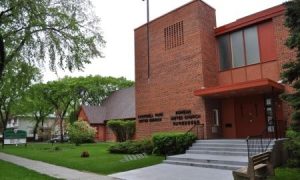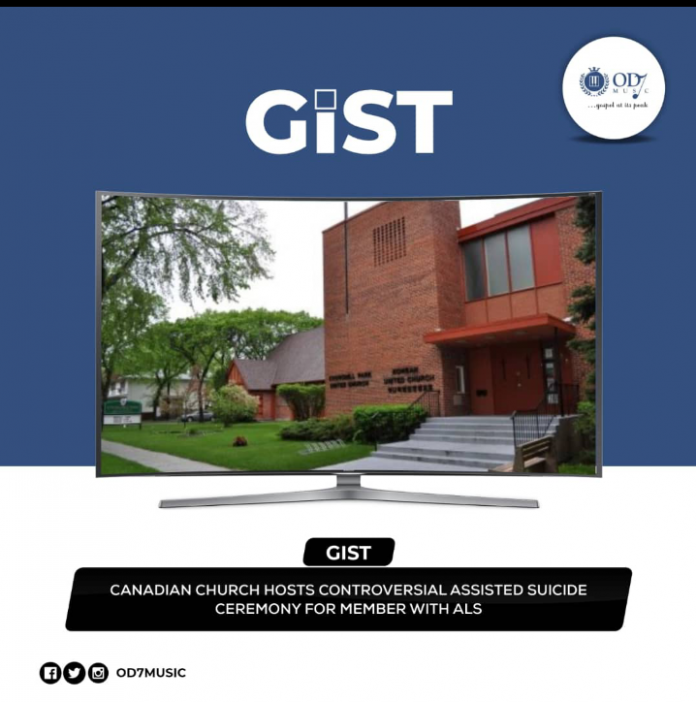
A Canadian church was recently the site of an assisted suicide ceremony held for one of its members diagnosed with ALS, better known in the U.S. as Lou Gehrig’s disease.
Churchill Park United Church of Winnipeg became the first church in Manitoba to host the controversial practice, which it described as a “Crossing Over Ceremony” last month for 86-year-old Betty Sanguin.
The church’s leadership team had unanimously approved Betty Sanguin’s request for the assisted suicide ceremony that was held in the sanctuary, as she had strong ties to the congregation.
The Rev. Dawn Rolke, minister of Churchill Park, said in a recent interview that it “seemed appropriate” to hold the ceremony in the sanctuary, as churches are often “host and home to all the raggedness of our lives and to some of our significant life rituals: baptism, marriage, ordination, funeral or memorial services.”
“For us, it was perfectly natural to hold this service for Betty in our sanctuary because death is a natural part of life and Betty had lived a good part of her adulthood in this faith community. Hers was a growing, changing spirituality; her faith was feisty, fierce and passionate, like Betty herself,” said Rolke.
“Some see medically-assisted death as a private matter and they sought to honour this individual’s request. Some felt it was right for Betty, in particular.”
Canada’s healthcare system offers patients the option to have assisted suicide, what is known as MAiD or “medical aid in dying,” in which a physician or nurse practitioner carries out the death by chemical injection.
At Churchill Park United Church of Winnipeg, the typical sanctuary seating was removed and replaced by comfortable chairs, tables, flowers and a recliner, which Sanguin sat in during the event as people came and went throughout the day to say their goodbyes.
Friends and family visited Sanguin who was joined by her adult daughters and grandchildren, with Rolke leading the ceremony.
The chemical injection to hasten death began at 1 p.m. An hour later, Sanguin had passed.
“The children and some grandchildren went back into the sanctuary to be with Betty,” recalled Rolke. “And people began to quietly come and go from Betty’s side as the medicine took effect.”
“It was like a wake.”
By around 4 p.m., staff from a funeral home arrived to transport Sanguin’s body to its chapel and make preparations for her burial.
“We were deeply honoured to be able to be with Betty in her final moments and hours and to honour her wishes around her dying process. She was so happy, she was so ready, she was so radiant,” Rolke added.
In 2016, Canada passed a law legalizing physician-assisted suicide, with the law limiting access to citizens or permanent residents who were at least 18 years old and had “a serious and incurable disease, illness or disability” that included “enduring and intolerable suffering.”
What are your opinion on this controversial incident, should such a ceremony be carried out in a church?











